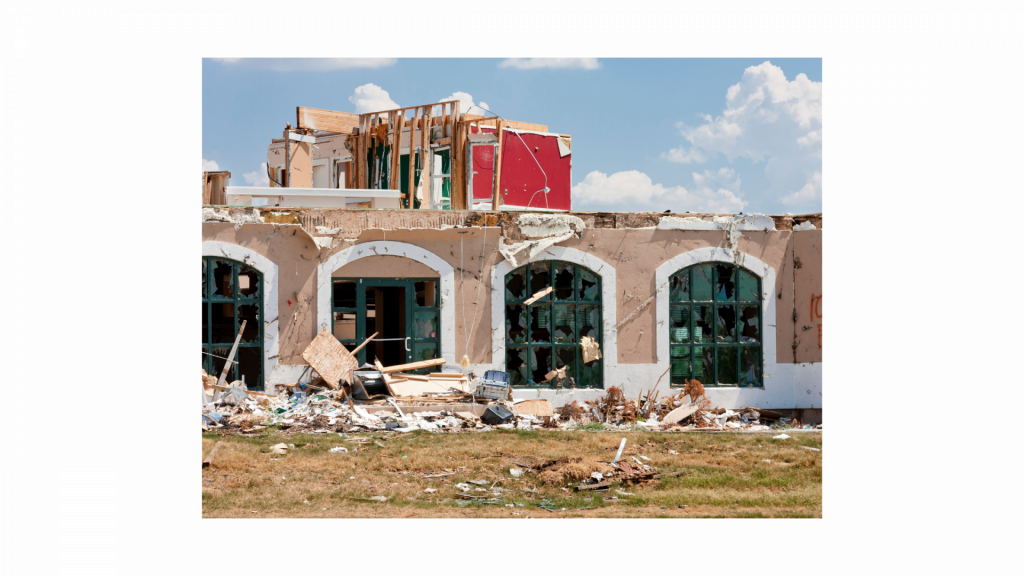Ice in the west, hurricanes in the southeast, plus winter is coming to the north- all potential disasters for people leasing commercial spaces. Yet, businesses with multiple facilities in one or more of those regions can’t just simply refer to a single lease for answers when catastrophic events occur. Clauses, provisions, local/state laws all vary and without knowing exactly where to find the information in the lease, businesses are at a costly disadvantage. How can you mitigate this risk?
Disaster Recovery of Data
A real challenge in managing this kind of risk is that there is no uniform lease- each one is different in length, language, and contract provisions and it is critical to understand what is in your lease Each page in the lease contains information vital for that specific building/office/piece of land, yet many companies have no idea where the physical documents are kept, let alone what they say. From Fortune 100 to small businesses, we’ve heard the same response when asked to see companies’ leases- “we aren’t exactly sure where they’re stored”. Many other companies’ store leases in a filing cabinet in a basement or one decentralized computer. In the case of any number of disasters- a filing cabinet or a computer will be destroyed along with the leases.
Just like protecting your valuables at home, there are steps to protecting your leases at work. Make sure the original documents are digital, servers that hold the scanned documents are off-site or your data is in a cloud. By creating a centralized system for leases, companies can easily determine their rights and responsibilities under the lease should disaster strike.
Force majeure clause
When going through a lease, there is typically a clause pertaining to catastrophic events. Translated from French, force majeure means “greater force”. The clause is a provision that allows a party to be free of obligations because of an uncontrollable event or “Acts of God”. That’s the definition in the broadest sense. In most cases, it was generally assumed that the events are natural disasters. However, times have changed and there is now the threat of human-caused catastrophic events- 9/11/01 for example. Since no lease is the same, the clause can be written to address specific regional issues. Companies with lease assets in “weather sensitive” regions- think earthquakes, hurricanes and wild fires- need actionable in the wake of disaster. Having a real estate database that captures information about “rebuild” requirements, total vs. partial destruction is an important step in managing the situation.
Reconstruction/Casualty Provision
Damage is done, now what? The reconstruction/casualty provision is structured to answer who pays for what and is the lease subject to termination or rate abatement. The provision has set dates, should a catastrophic event occur, if tenants will be able to end the lease early or if the interior is destroyed, (for example) by fire who pays to rebuild (or if landlord can terminate the lease). Often times there is a paragraph(s) devoted to insurance coverage to distinguish coverage of certain areas. This provision can have some “unrealistic” deadlines for both tenants and landlords, so make sure with each lease the dates are understood and manageable.
Boilerplate
The clauses mentioned above are often referred to as the “boilerplate” provisions because if not clearly defined it can be a costly mistake even more so if the tenant cannot access the deadlines written within. The devastation in Puerto Rico in 2017 was a wake- up call to many retail tenants and commercial landlords that boiler plate provisions in these regions were too vague and left the parties facing delays and litigation in working through the financial responsibilities of the landlord and tenant. It is important to remember that when a catastrophic disaster hits- nothing is “boilerplate” and negotiating these kinds of provisions prior to lease execution can be the difference between maintaining your business or shutting the doors.
Solution
Jackson Cross Partners has abstracted tens of thousands of leases and populated hundreds of databases for companies. Click here to find out how we can help your company.
Authored by Cate Sennett

